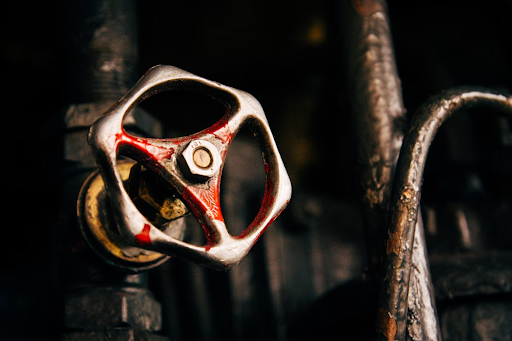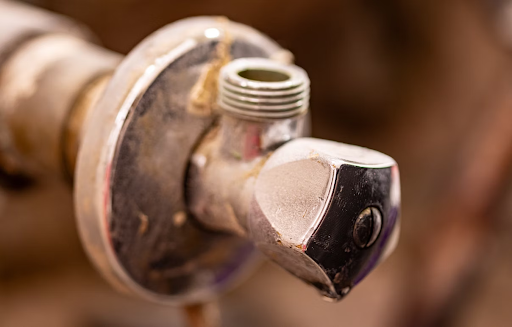
The Importance of Quality Backflow Valves for Reliable Water Protection
In regions like San Diego, where reliable access to clean water is critical for both homes and businesses, it’s essential to have protective systems in place to prevent contamination. One of the primary components in maintaining a safe water supply is a properly installed and maintained backflow valve. Whether you manage a commercial facility, oversee a multi-unit property, or simply want to safeguard your residential plumbing system, investing in high-quality backflow valves in San Diego can make a major difference.
What Are Backflow Valves?
Backflow valves, also known as backflow preventers, are mechanical devices designed to stop contaminated water from flowing backward into the clean water supply. Under normal conditions, water flows in one direction. The typical route is from the municipal supply through your plumbing system and out through fixtures like faucets or irrigation systems. However, changes in pressure, like a water main break or heavy usage, can cause a reversal in flow. When this happens, dirty or potentially hazardous water can backflow into the clean water system.
Backflow valves are built to detect and stop this reverse flow before it reaches the public water supply, helping to prevent contamination from sources like fertilizers, chemicals, or bacteria.

Why Backflow Prevention Is Critical
Backflow prevention is more than a building code requirement. It’s truly a health and safety necessity. In San Diego, prevention devices are required in many areas and recommended in others. Cross-contamination events can lead to serious public health concerns, especially in communities where shared water systems serve large populations. If irrigation runoff, industrial waste, or sewage infiltrates clean lines, it can spread dangerous contaminants that pose risks to drinking water and overall hygiene.
Here are some of the most common backflow risks:
- Irrigation Systems – Sprinklers and drip systems often contain pesticides, herbicides, and fertilizers that can be pulled into supply lines during pressure drops.
- Commercial and Industrial Facilities – These sites may use chemicals, cleaners, or processing fluids that should never enter potable water systems.
- Residential Applications – Homes with pools, hot tubs, or irrigation systems can also be sources of backflow contamination if unprotected.
In all these scenarios, a functioning backflow valve acts as a safety checkpoint, halting any reverse movement of water and keeping contaminants out of your clean supply.
The Benefits of Quality Backflow Valves
Not all backflow valves are created equal. Investing in high-quality products can help ensure long-term performance, regulatory compliance, and peace of mind. Here’s why quality matters:
- Durability and Longevity: Top-tier valves are manufactured using materials like stainless steel, brass, or heavy-duty polymers that can withstand years of wear, pressure fluctuations, and exposure to environmental elements. This reduces the need for frequent repairs or replacements.
- Precise Engineering: A quality valve opens and closes with reliable timing and tight seals. Poorly constructed models may leak, stick, or fail entirely—defeating the purpose of having a valve in the first place.
- Compliance with Local Codes: In areas like San Diego, local plumbing codes require that backflow devices meet certain standards and pass regular inspections. Reputable valves from trusted manufacturers are more likely to meet these requirements and pass certification tests.
- Fewer Service Interruptions: Reliable valves reduce the chance of system shutdowns or emergency repairs, which can be costly and inconvenient for both businesses and homeowners.
- Better Protection for Public Health: Above all, high-performance backflow valves provide dependable protection against contaminants and safeguard both your property and the community water supply.
Types of Backflow Valves
There are several types of backflow prevention assemblies, each designed for different applications. The most commonly used include:
- Double Check Valve Assembly (DCVA): Best for low-risk residential and commercial uses, these valves feature two check valves for added security. They are compact and relatively easy to maintain.
- Reduced Pressure Zone (RPZ) Assembly: Ideal for high-risk situations such as industrial facilities or irrigation systems using chemicals. RPZ valves offer the highest level of protection and include a relief valve that vents to the atmosphere in case of malfunction.
- Pressure Vacuum Breakers (PVB): Often used in irrigation systems, these valves are designed to prevent back-siphonage. PVBs are easier to install than RPZs but offer less protection in high-pressure or flood-prone environments.
- Atmospheric Vacuum Breakers (AVB): The simplest and least expensive option, AVBs are typically installed on hose bibs or single outlets. They offer basic protection but are not suitable for continuous pressure systems.
When selecting a valve, it’s important to consider the water source, system pressure, hazard level, and local code requirements. You can work with a backflow supply company like One Stop Backflow Supply to help you choose the right option for your setup.
Maintenance and Testing: Don’t Set It and Forget It
Installing a quality valve is only part of the equation. Regular maintenance and testing are essential to ensure continued protection. Many jurisdictions, including San Diego, require annual backflow testing by a certified technician, especially for commercial properties.
Routine testing involves:
- Verifying proper valve operation under normal and abnormal pressure
- Checking for leaks, corrosion, or worn-out seals
- Ensuring the valve meets code and is properly registered with the local water authority
Keeping up with testing not only ensures compliance but helps you catch minor issues before they turn into expensive repairs.
Choosing a Reliable Supplier
To ensure you’re getting dependable products, work with a supplier that specializes in backflow prevention. Look for companies that offer:
- A wide selection of certified valves from trusted brands
- Knowledgeable staff who can help with product selection
- Inventory for residential, commercial, and industrial applications
- Parts, repair kits, and support for maintenance and testing
One Stop Backflow Supply provides quality backflow valves, components, and expert support to customers throughout the San Diego area. Whether you’re replacing a single valve or outfitting a multi-site system, having a dedicated supplier helps ensure you get the right products for the job.
Get Quality Backflow Valves in San Diego with One Stop Backflow Supply
If you’re looking for dependable backflow valves in San Diego, One Stop Backflow Supply has the parts, knowledge, and support to help you do it right. Their team can guide you to the right product for your needs, whether you’re outfitting a new system or replacing a worn-out device.
Call or visit One Stop Backflow Supply today to learn more about protecting your water system with proven, code-compliant backflow solutions.
